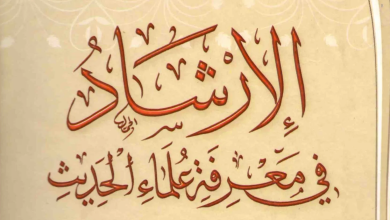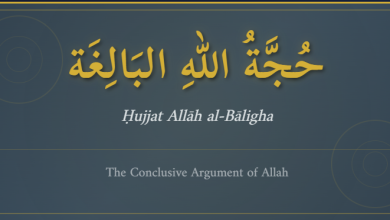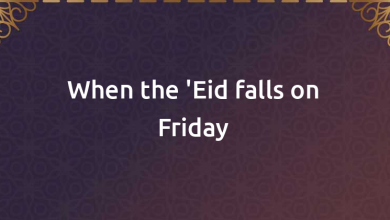Imam al Tahawi on Performing Farḍh behind someone praying Nafl
The following is an excerpt translated from the chapter: ‘A person performing Farḍh (obligatory prayer) behind one praying Nafl (supererogatory prayer)’, of Imām Abū Ja‘far al-Ṭaḥāwī’s[1] masterpiece; Sharḥ Ma‘ānī ‘l-Āthār[2]. This is also the opinion upheld by the majority of the Fuqahā’ besides the Ḥanafīs. The Malikī School hold this view and it is a view adhered to by majority of the Ḥanbalīs[3].
Abū Ja‘far (al-Ṭahāwī) says: It has been related from Jābir ibn ‘Abdullāh that Mu‘ādh ibn Jabal would perform ‘Ishā’ with the Prophet ﷺ, thereafter return to his people, the Banū Salamah (clan), and lead them in ‘Ishā’ again. We have previously mentioned this narration with its chain in the chapter ‘Qirā’ah (recitation) in the Maghrib prayer’.
A group of scholars are of the opinion that a person praying Nafl may lead as an Imam those performing Farḍh, and have used as evidence the aforementioned narration. Contrary to this view, however, other scholars hold that it will not be valid for a person to fulfil a Farḍh prayer behind one who is performing Nafl. In proving this, they state that there is nothing categorical in the Hadīth of Mu‘ādh to suggest whether the Ṣalāh performed whilst leading his people was a Farḍh or Nafl act. It may be that he would pray ‘Ishā’ as Nafl with the Prophet ﷺ and then come to his people and lead them in the same Ṣalāh, but this time as a Farḍh. So if this was actually the case then the Hadīth will be of no evidence for your (first group’s) view. It is also probable that Mu‘ādh would pray ‘Ishā’ with the Prophet ﷺ as Farḍh and then lead his people in it as Nafl, as is your (first group’s) viewpoint. Therefore, both meanings are conceivable from the Hadīth, and one meaning cannot be determined over the other except by proof affirming such a view.
So the first group say: We have found in some narrations (āthār) that what Mu‘ādh would pray with his people was Nafl, and that his prayer with the Messenger of Allāh ﷺ would be Farḍh.
And they have brought, as proof of this, what Ibrāhīm Ibn Marzūq narrated to us. He said: Abū ‘Āṣim narrated to us from Ibn Jurayj from ‘Amr that he said, “Jābir – may Allāh be pleased with him – informed me that Mu‘ādh would pray ‘Ishā’ with the Prophet ﷺ, thereafter return to his people and lead them in it (‘Ishā’) again, such that the prayer with his people would be considered Nafl for him, but Farḍh for them.
In reply to this, the second group attest that ibn ‘Uyaynah, like ibn Jurayj, narrated the same Hadīth from ‘Amr ibn Dīnār in its entirety, with the content being better preserved than that of ibn Jurayj’s wording, except that he (ibn ‘Uyaynah) did not include in the narration: “for him it is considered Nafl and for the people it is Farḍh”. So accordingly, this latter statement may have originated from one of three narrators: ibn Jurayj[4], ‘Amr ibn Dīnār or Jābir. However, regardless which of the three the statement originates from, it will be of no evidence in determining the reality of Mu‘ādh’s action, as these narrators have not relayed the statement from Mu‘ādh himself, but have made their own observations regarding his actions. Therefore, it is entirely possible that the reverse is true (i.e. his Salāh with the Prophet ﷺ was Nafl and with his people it was Farḍh)[5]. If, on the other hand, this was indeed a statement of Mu‘ādh, it would nevertheless serve as no proof that his actions were carried out under the instruction of the Messenger of Allāh ﷺ, or that had the Messenger of Allāh ﷺ been informed of his actions he would have approved of them or would have instructed him to alter them.
This would be similar to when ‘Umar Ibn ‘l-Khaṭṭāb – may Allāh be pleased with him – was informed by Rifā‘ah ibn Rāfi‘ that the people used to have intimacy in the time of the Messenger of Allāh but did not perform Ghusl (bathing) if there was no emission of semen.
So ‘Umar Ibn ‘l-Khaṭṭāb – may Allāh be pleased with him – replied to them: “Have you informed the Prophet ﷺ about this, and did he approve of it?” Rifā‘ah replied: “No”. So ‘Umar – may Allāh be pleased with him – did not consider this as proof of their activity being sanctioned. Similarly, were it established that Mu‘ādh performed Salāh in the manner claimed during the time of the Messenger of Allāh ﷺ, it would be of no evidence that this was commanded by the Messenger of Allāh ﷺ, and instead we have narrated from the Messenger of Allāh ﷺ proof of the opposite:
Fahd narrated to us from Yaḥyā Ibn Ṣāliḥ – (al-Ṭaḥāwī with a different chain) likewise ‘Alī Ibn ‘Abd ‘l-Raḥmān narrated to us from ‘Abdullāh ibn Maslamah ibn Qa‘nab – they both (Yaḥyā Ibn Ṣāliḥ and ‘Abdullāh ibn Maslamah) said Sulaymān ibn Bilāl narrated to us that he said, ‘Amr ibn Yaḥyā al-Māzinī narrated to us from Mu‘ādh ibn Rifā‘ah al-Zuraqī that a man from Banū Salamah called Sulaym came to the Prophet ﷺ and complained: “We remain continuously working in the day and return in the evening and pray. Then Mu‘ādh comes and announces the call to prayer (‘Ishā’) to which we attend, but he lengthens his recitation over us (i.e. lengthens the duration of Ṣalāh)”. So the Prophet ﷺ replied: “O Mu‘ādh, do not be a cause of discord. Either pray with me or relieve your people (by shortening the recitation)”.[6]
So this instruction of the Messenger of Allāh ﷺ to Mu‘ādh is proof that the Prophet ﷺ was of the belief that Mu‘ādh was doing one of two things; either perfoming Ṣalāh with him or with his people – not both. Because he ﷺ said: “Either pray with me” – meaning; do not pray with your people for a second time – “or relieve your people” – meaning; do not pray with me (but pray with your people, shortening the recitation).
Compiled by Abu Humayd
[1] He is: Imām Abū Ja‘far Aḥmad Ibn Muḥammad al-Ṭaḥāwī رحمه الله [d. 321]. [2] Sharḥ Ma‘ānī ‘l-Āthār, 4 vols. (Beirut: ‘Alam al-Kutub, 1994), [1:408-410]. [3] Ibn Qudāmah, al-Mughnī (2/31) [4] Few Scholars have rejected Ibn Jurayj’s narrations where he didn’t caregorically affirm the hearing of the narrations, refer to Siyar A‘lām ‘l-Nubalā‘, Imām al-Dhahabī (6/331). [5] Mulla ‘Alī al-Qārī mentions something similar in his Mirqāt ‘l-Mafātīḥ (1/691), he says:
‘Mu‘ādh prayed with the Prophet ﷺ with the intention of Nafl to learn the Sunnah of Ṣalāh and to take barakah from it.’
[6] This is a mursal narration – also related in Musnad Aḥmad (#20199) and Mu‘jam ‘l-Kabīr of al-Ṭabarānī (6/67 #622). Imam al-Haythamī comments in his Majma‘ ‘l-Zawā’id (2/72 #2371):






